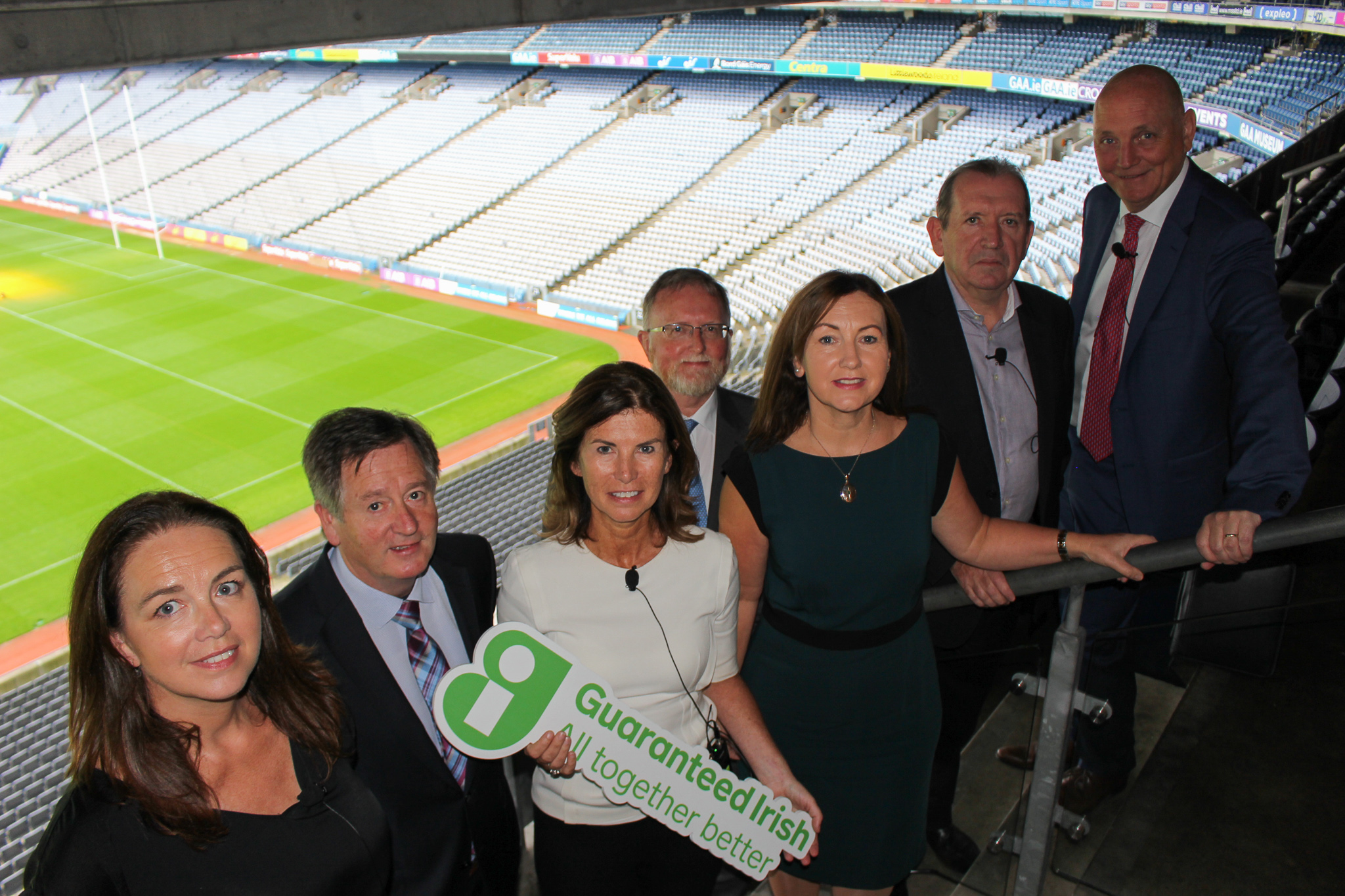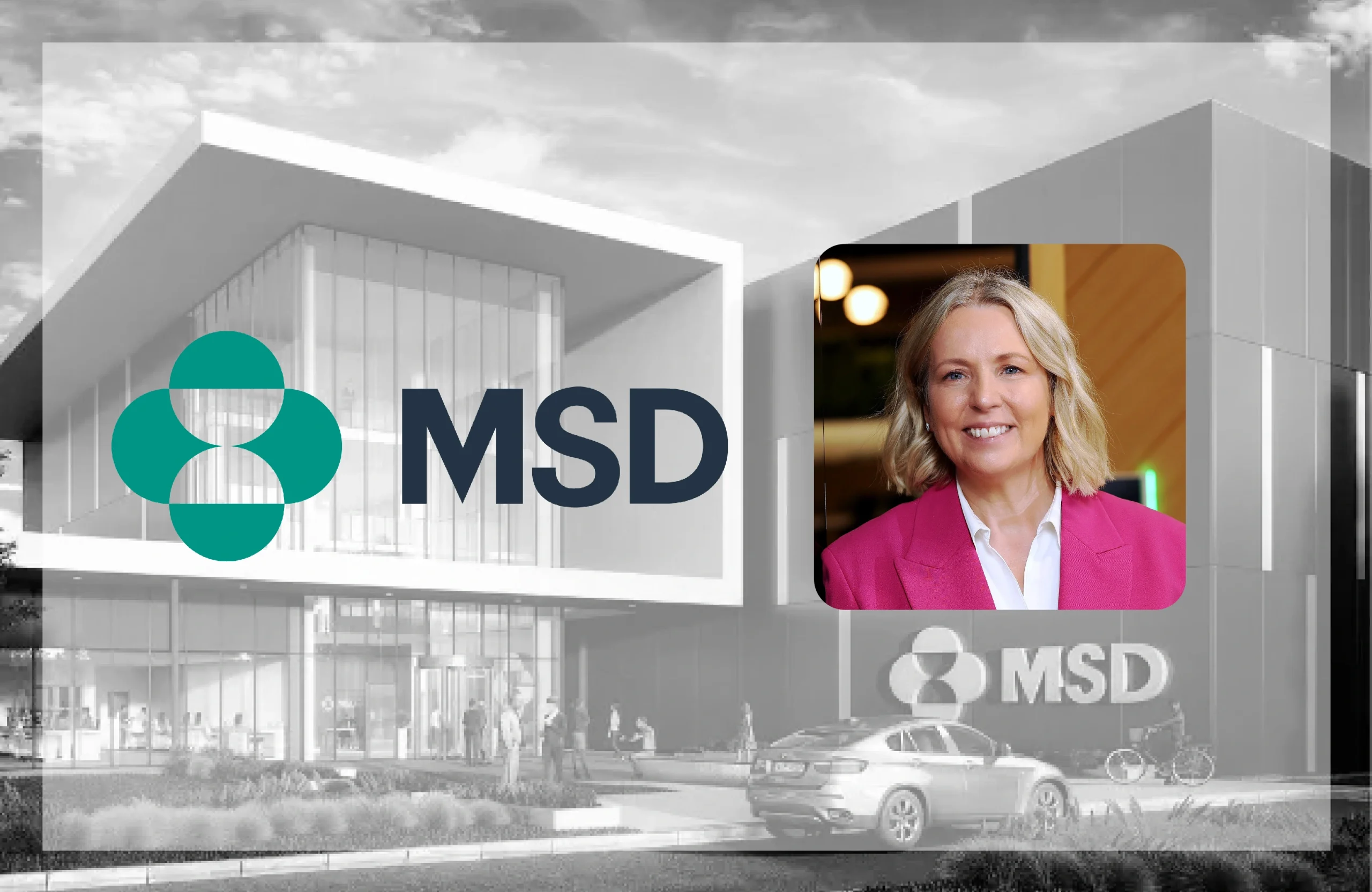September 2019
Introduction
Guaranteed Irish designates September as ‘Construction Month’. Now in its third year, Guaranteed Irish highlights the contribution its construction, manufacturing and engineering members make to Irish jobs, local communities and the Irish economy. Members of Guaranteed Irish in the construction sector include Kingspan, Saint Gobain, Tegral, Kilsaran Concrete, Combilift and many more.
As part of Guaranteed Irish Construction Month this year, Guaranteed Irish held a roundtable discussion on “Planning for a sustainable Irish construction sector in post Brexit Ireland- the challenges and opportunities” which focused on safeguarding homegrown construction jobs and building a future for the construction industry in Ireland.
This position paper sets out the key concerns emanating from the event, as well as the key solutions and actions required by the Government to successfully sustain quality construction jobs in a post-Brexit Irish economy.
The roundtable discussion was held in Croke Park and the panel of experts consisted of a number of key decision makers in the Irish construction sector including:
- Rachel Kenny, Director of Planning, An Bord Pleanala
- Kathryn Meghan, CEO, RIAI
- Brian Dolan, Managing Director, Saint Gobain Ireland
- Paddy Kelly, Managing Director, Tegral and Chair of Guaranteed Irish
- Pat Lucey, Regional Managing Director, SISK
- Patrick Atkinson, CEO, Chadwick Group
Please note that while the following paper is based on the concerns raised in discussion at the event, the views expressed are not necessarily endorsed by all contributors or their employers.
All attendees of the Irish construction supply chain were represented. They shared their concerns regarding Brexit and discussed opportunities that Guaranteed Irish members should be focusing on regardless of Brexit, that would lead to creating consistent employment and offer a professional career path.
There was a strong focus on how the sector can play its role in achieving environmental targets and reduce carbon footprint of the Irish construction sector.
The six main areas Guaranteed Irish have called on the Government to review include:
- Brexit’s effect on Irish construction – how to avoid a boom and bust economy in the construction sector.
- Linking Guaranteed Irish businesses to environmental impact assessments (EIA) – driving towards a zero-carbon target by rewarding those who use local services, sources and supply chains.
- Research for the “Guaranteed Irish House” – Building a house made from materials/products that are available from companies in Ireland who support local jobs/economies.
- Rebranding the Construction sector– creating an image around the construction industry to attract educated and innovative design and engineering talent.
- National Design competition– creating a national competition to attract innovative solutions to the housing crisis.
- Decentralisation of construction boom through retrofitting – creating regional opportunities to support regional construction jobs.
Guaranteed Irish calls on the Government to safeguard Irish construction jobs by looking at six main areas to ensure that the Irish construction industry can thrive consistently in the years ahead, ensuring jobs and careers in the construction sector are safeguarded.
Each of the six areas are addressed in detail below.
- Brexit’s effect on Irish construction – how to avoid a boom and bust economy in the construction sector:
Concerns:
- Logistics and transport of goods across the border in the case of a No-Deal Brexit.
- Construction jobs in border areas are faced with uncertainty.
- Day to day concerns include how construction sector employees will be able to commute to work should border checks come into place.
- There is currently an over-reliance on private construction projects.
- There is little or no government investment in public sector construction in the regions.
- The procurement process needs to function in an adaptable, intuitive and intelligent manner following Brexit.
- There is a need for procurement briefs to be written by someone with expert-level industry knowledge.
- Supports/ incentives for retrofitting
Solutions:
- Brexit and border are detrimental to the Irish construction sector. The sector supports the Government in their bid to avoid a no-deal Brexit. They are prepared as much as they can be and stockpiling is having a negative effect on cashflow. Decisions need to be made soon.
- There needs to be more Government spending/investment in schools, housing, public sector projects in the regions. This reduces over-reliance on private investors who offer no loyalty to Irish construction sector
- The 500,000 homes across the country currently requiring retrofitting could future proof opportunities within construction regarding employment for the next thirty years. The Government need to continue to support this programme and reassure consumers that there is funding in place to support deep retrofitting.
- Linking Guaranteed Irish businesses to environmental impact assessments (EIA) – driving towards a zero-carbon target.
Concerns:
- Project Ireland 2040 and Ireland’s global target to comply with the green agenda (reduction of carbon miles to achieve zero emissions target).
- Redefining sustainability within the construction sector.
- Need to advocate for a sustainable mindset to replace a regulatory mindset.
- Review of the BER system (currently focuses primarily on the end-product house and not the carbon footprint of the entire construction process).
- Need to manage the performance of BER ratings over time (different products perform differently as they age).
- Information and supports to incentivise retrofitting are not being promoted heavily enough by Government.
Solutions:
- The construction sector needs to be incentivised to achieve zero emissions/reduced carbon footprint if it is to have any chance of reaching its target. This requires defining sustainability to include locally sourced; reward less travel required and incentivising creation of regional enterprise and employment.
- Choosing sustainable local alternatives – source locally manufactured products, local innovative design, transport to strive towards zero emissions targets, including employment in communities as part of the understanding of “sustainable”, which the Guaranteed Irish licence demonstrates.
- The BER programme needs to be reviewed to include the holistic view and include the entire carbon footprint of the house over time– not just the end product.
- If funding is available to incentivise retrofitting it would offer a more environmentally favourable solution while also ensuring the construction sector could flourish regionally, supporting smaller builders and attract new young innovative talent into the sector.
- Research for the “Guaranteed Irish House” – supporting local suppliers and retaining local jobs in regional communities.
Concerns:
- Lack of collaboration and communication with manufacturers, suppliers and the public.
- Need to improve visibility surrounding locally-produced goods and services.
Solutions:
- Opportunity to be our own showcase for Irish architecture (showcasing innovative design) and the Irish construction industry.
- Need to support locally sourced and produced products to suppliers and distributors with potential incentives (rewards through tax, EIA at planning stage).
- Improved visibility is required for locally-produced construction products and services (planning criteria and building regulations in line with reduction of carbon footprint target).
- Rebranding – creating an image around the construction industry to attract educated and innovative talent.
Concerns:
- Construction is currently associated with a boom/bust cycle, heavy-lifting and a lack of education.
- Positive news related to the construction industry is often neglected and this undermines trust in the sector’s image.
Solutions:
- There is growing interest in trades among younger generations, which should be capitalised on.
- We need to push that a trade is a successful option for young people and that there is a viable career path within construction. Trades need to be perceived as entrepreneurs and celebrated as same.
- We need to implement a fundamental change of seeing apprenticeships as equal to degrees.
- A new generation of architects and designers could be attracted through national design competitions.
- National Design Competition– creating a national competition to attract innovative solutions to solve the housing crisis.
Concerns:
- Demographics are changing and we need to be innovative in finding solutions locally to satisfy housing needs.
- The appetite for innovation is there, but people/planners/builders/developers revert to simplicity for ease, speed and cost of application.
Solutions:
- Opportunity to look at future populations and their housing requirements
- Innovative design needs to be embraced by local authority planning and incentivised by same- reward innovation with contracts/work.
- National housing competition should be resurrected as could be a meaningful solution.
- Need incentives for innovative and sustainable guidelines and penalise those who do not adhere to regulations.
- Decentralisation of construction boom through retrofitting – creating regional opportunities to support regional construction jobs.
Concerns:
- The construction industry is currently focused primarily around the greater Dublin region, with the majority of construction jobs and opportunities located there.
- The lack of economic resilience West of the Shannon is impacting construction projects in that region.
Solutions:
- The Atlantic Economic Corridor should become a reality as a counterbalance to Dublin.
- Towns and cities should work as ‘clusters’ in a region first to collaborate rather than compete against each other at a regional level.
- There is a need to give local construction companies outside of the Dublin area the confidence to lead on innovation through incentives relating to carbon reduction and zero emissions which need to be communicated and demanded via Government.
- The Government could further invest in implementing a registered listing of local construction suppliers, products and supply chain providers through Guaranteed Irish.
Conclusion:
1.REGIONAL PROSPERITY IN THE CONSTRUCTION SECTOR THROUGH RETROFITTING FROM RINGFENCED CARBON TAXES
Overall, there is an opportunity for the construction industry to collaborate and apply ‘joined-up thinking’ to futureproof the industry by guaranteeing jobs and regional prosperity and offering opportunities for global innovation that will eliminate the boom bust scenario in the Irish construction sector. Financial rewards to ‘retrofit’ will ensure long term support for regional construction businesses and these must form part of the “ring fenced funds” accumulated through carbon taxes.
- GUARANTEED IRISH GREEN CONSTRUCTION LIST- REDUCING THE CARBON FOOTPRINT IN IRISH CONSTRUCTION
Proof of concept on how collaboration might work through support for the creation of a supply chain list of local suppliers, products and services are proposed by Guaranteed Irish, who will facilitate. Included by invitation to this working group are the CIF and RIAI. The final Guaranteed Irish construction recommended list will be distributed via the RIAI and Local Planning authorities and An Bord Pleanala with a view to redefining the meaning of sustainable to ensure it encapsulates: Local jobs, reduction of carbon footprint and drive towards zero emissions.
- SHOWCASING IRISH CONSTRUCTION EXCELLENCE THROUGH THE ‘GUARANTEED IRISH HOME’
Expanding on this, such a list will allow the construction industry to showcase their world class standard of excellence through the design and build of a ‘Guaranteed Irish home’. Guaranteed Irish construction manufacturers, suppliers and providers can showcase their products, design and skills and “commitment to sustainability and the green agenda” through this initiative. This will actively drive the construction of Guaranteed Irish homes, safeguarding local construction jobs and products in the process, which will drive towards eliminating a “boom and bust cycle in construction” and a carbon neutral solution.
For more info:
Guaranteed Irish, the national symbol of trust and provenance, is a business membership organisation championing 600 + homegrown and international businesses operating in Ireland. We award the Guaranteed Irish symbol to companies which create quality jobs, contribute to local communities and are committed to Irish provenance.
Guaranteed Irish celebrates 45 years this year supporting all businesses in Ireland. Having positioned themselves as the voice of certainty for industry, both indigenous and international, Guaranteed Irish is calling on the Government to ensure Ireland’s construction industry is prepared for the challenges posed by Brexit, climate action and the current demand for housing.





